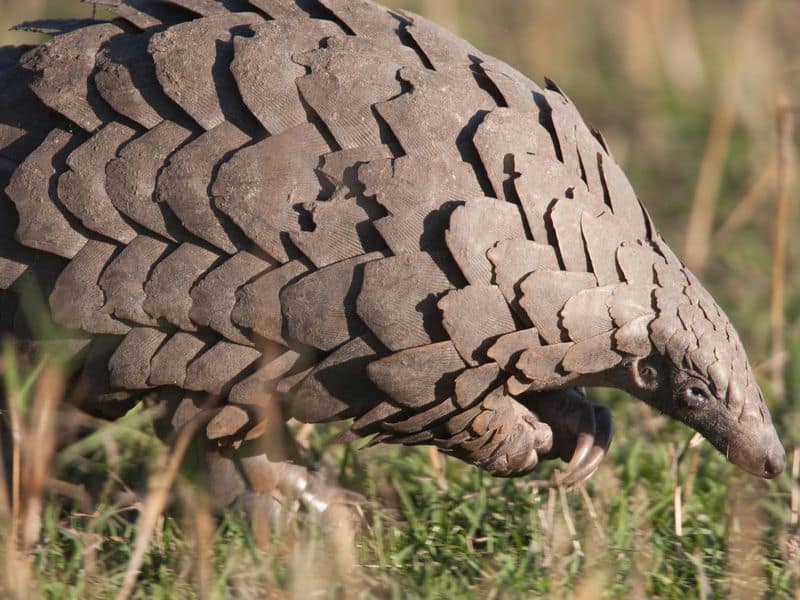ISLAMABAD – Illegal wildlife trade of Pangolins, mostly found in Punjab, was decreased 80 percent across the country in the last three years.
According to environmental experts Pangolins, once found in abundance in the fertile plains of Punjab province, was declared the most critically endangered species around the globe by the International Union for Conservation of Nature (IUCN).
“A pangolin captured by a local poacher is sold for Rs 25,000 to 30,000 to the smugglers exporting the specie to China. The scales of pangolin are used for producing medicine as it contains keratin,” they added.
The experts revealed that Interpol had claimed illegal wildlife trafficking as the third most lucrative business after drugs and illegal arms business around the world.
They said pangolins were the most poached species across the world and around 186 countries party to the Convention on International Trade in Endangered Species (CITES) voted for imposing a ban on the commercial trade of pangolins.
Other illegally trafficked wildlife species of the country included freshwater turtles, tortoises, falcons used for falconry, Poisonous snakes for their venom used in pharmaceutical purpose and also foxes, jackals and wolves for their fur, freshwater otters, sharks in the coastal area of Balochistan for their fins and scorpions for their venom.
“The illegal wildlife trade is among the serious environmental crimes which also include illegal wild flora trade, pollution inducing activities, unmanaged waste disposal and also e-waste dumping,” the experts maintained.
To a question, the experts said the main reason behind increasing wildlife trafficking and other environmental crimes in the country was weak legislation and critical smugglers active due to the negligence of relevant authorities and quarters concerned.
World Wildlife Fund (WWF), they said, had remained active on the issue of wildlife illegal trade and was sensitizing relevant stakeholders and media where the latter played a significant role in highlighting such activities resulting in foiling of illegal smuggling on the spot.
Among other environmental crimes was indiscriminate logging which resulted in extreme deforestation in the country, adding “the catastrophic 2005 earthquake resulted in widespread landslides in the northern areas.
The Billion Tree Project in Khyber Pakhtunkhwa province had helped in changing the minds of people as communities at the local level had started protecting Chilghoza Pine trees owing to the value of its fruit.
Though the government had tightened the noose against timber mafia yet it was reported to still active at some places across the Khyber Pakhtunkhwa province, they said.
“Climate Change is an environmental crime in Pakistan as its emissions are negligible at the global level but have faced adverse impacts. The German Watch has rated Pakistan at number seven in Global Climate Change Risk Index which reckons the level of its vulnerability among the topmost affected countries in the world due to climate change,” the experts said.
Environment, they said, was not the priority of the stakeholders in the country due to the war on terror and its grave repercussions, economic issues and media obsession with negative news hampered effective coverage of ecological issues in the country.













